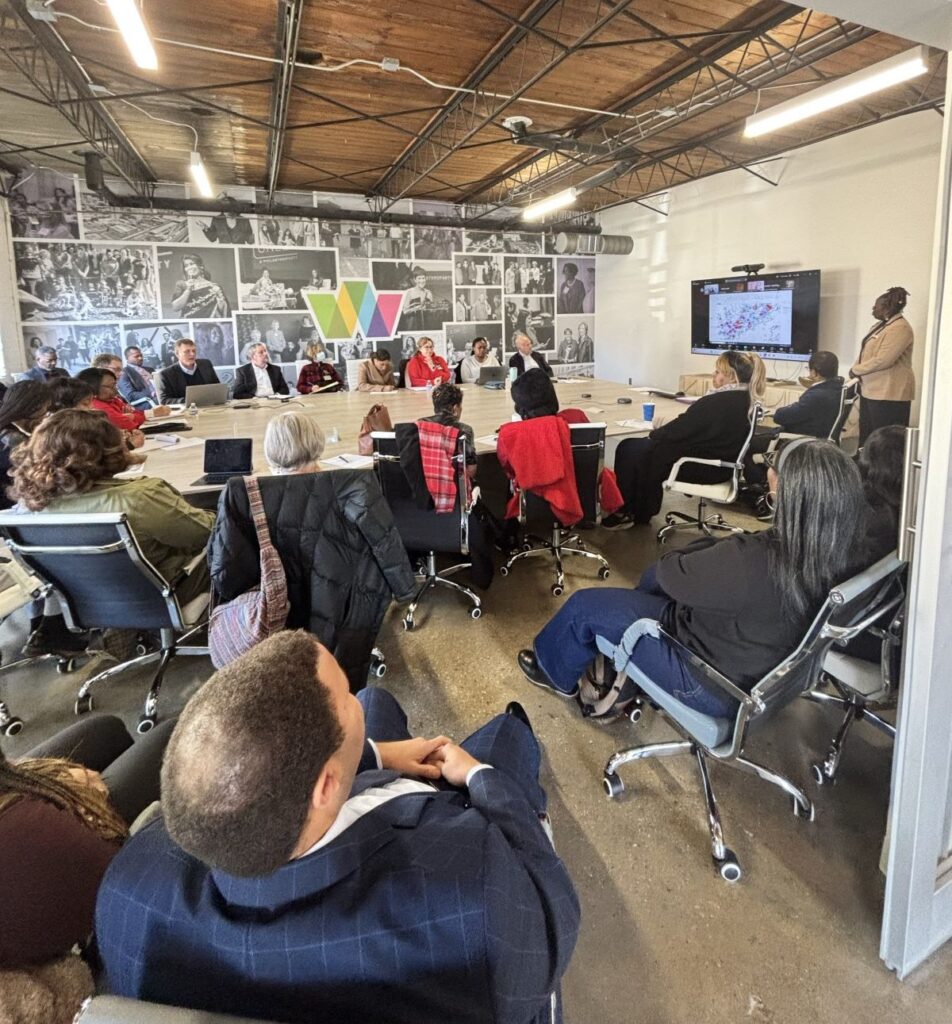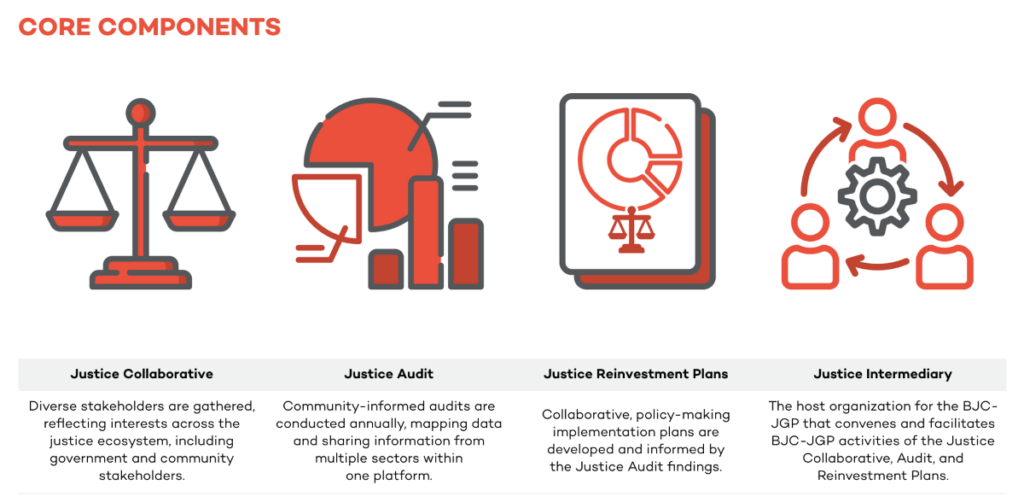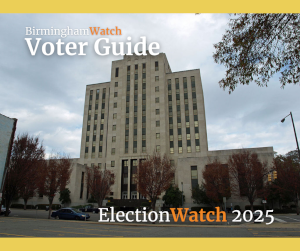Public Safety
Data-Driven Partnership To Tackle Root Causes of Violence in Jefferson County

Donate today to help Birmingham stay informed.
A partnership aimed at coordinating efforts to reduce violence and improve health and opportunity across Jefferson County has formally launched after more than two years spent in planning and stakeholder-engagement stages.
City and county government, education, health and community organizations are involved in the Birmingham-Jefferson County Justice Governance Partnership, which has goals of using hyperlocal data to develop coordinated policies and neighborhood-specific plans to address factors contributing to violence. The partnership announcement comes after Birmingham ended 2024 with 151 homicides, making it the deadliest year in the city’s history, and on the heels of the Birmingham Crime Commission Report, which calls for evidence-based violence-reduction strategies.
“This kind of work can’t be rushed,” said Douglas Wood, director of the Aspen Institute Criminal Justice Reform Initiative, which, along with the Public Affairs Research Council of Alabama, is supporting the partnership. “There must be buy-in, engagement and thoughtfulness that goes into doing work that sustains.”
The Birmingham area joins a handful of others — including Grand Rapids, Michigan, and North Charleston, South Carolina — in piloting Aspen’s Justice Governance Partnerships model.
The model is focused on ending overdependence on the criminal legal system and stimulating reinvestment in the local people, institutions and networks most knowledgeable about neighborhood safety and justice, Wood said. The Aspen Institute is an educational and policy studies organization based in Washington.
Birmingham City Councilor LaTonya Tate and Jefferson County Commissioner Sheila Tyson are co-chairing the Birmingham-Jefferson County partnership. They convened the partnership’s leadership council last week at the Women’s Foundation of Alabama.
Tyson said that when she chaired a committee on youth detention, the group didn’t have the data necessary to provide the services youth needed.
“No one really had good data, but the Aspen Institute was able to give us that, and that’s what drew my interest,” said Tyson, who was part of a team from Birmingham and Jefferson County that attended the inaugural Aspen Justice Network meeting in 2022.
The data needed to address root causes of youth crime is wide ranging, Tyson said: “What kind of family problems are they having? Do they have food? Do they have hot water? Do they have lights? Do they have a learning disability? Do they need to be on medication? Are they in a domestic violence atmosphere at home? Are they homeless?”
Putting children in youth detention and then releasing them back into the same situation is not working, Tyson said.
“It’s not helping at all,” she said. “It’s making the children worse.” And that leads them into crime as adults, she added.
In the past, data related to the underlying causes of violence in Jefferson County was collected sporadically and incompletely, Tyson said.
“None of it was done correctly, none of it was stored properly and none of it was continually being tracked,” she said. “This is the first solid data that we can see, that we can keep up, and it works because it’s worked in other states. It has a proven record.”
Four-Stage Process
The partnership’s work will be conducted in four stages, Wood said. The first two stages, which already are complete, were stakeholder engagement and planning.
The Birmingham-Jefferson County team’s participation in the Aspen Justice Network meeting was part of stage 1. “From there, we continued deep conversations in the community, made many presentations throughout the city and county and formed an initial leadership council, Wood said.
The planning stage, which has been going on for the past year, included the leadership council’s selection of PARCA as the partnership’s local justice intermediary. PARCA will coordinate data collection across agencies and provide research and analysis.
Stage 3 — initial implementation — is beginning now with development of a justice audit and with justice reinvestment planning to begin later this year and continue into next year, Wood said. Stage 4 is sustained implementation.

Justice Audit and Reinvestment Plan
To produce the justice audit, organizations involved in the partnership provide data on existing conditions and needs.
“This process consists of a deep engagement with hyperlocal data, by which we mean two things: first, it means engaging local institutions and community-based organizations to share data not otherwise available publicly; and second, data shared by these partners will be coded and normalized at the hyperlocal geospatial neighborhood level of census tracts,” Wood said.
The audit is then regularly updated to track progress.
A justice reinvestment plan identifies preventive investments that could improve neighborhood conditions and drive down the need for emergency responses.
Both the audit and the reinvestment plan are intended to identify ways to improve economic conditions, address violence and mitigate risk factors, with a focus on underserved neighborhoods.
University of Alabama at Birmingham researchers and care providers are participating in the leadership council and in data working groups that will contribute to the justice audit and will be involved in justice reinvestment planning, Wood said.
Tyson said mental health issues are important, often generational problems that are not getting enough attention.
“It increases as you get older,” she said. “So if you’re not treating it when they’re young, you can’t expect them to be well and healthy adults functioning in society.”
Goals
According to Terrika Shaw, project director of the Birmingham-Jefferson County partnership and director of community justice research for PARCA, the partnership has goals for this year and long term.
2025 goals:
- Solidify the role of the partnership’s leadership council as a long-term entity focused on addressing ongoing challenges regarding public safety and address fragmented coordination, as suggested in the Birmingham Crime Commission Report.
- Develop the current Birmingham-Jefferson County justice audit data application into a fully operational justice audit by establishing institutional and community-based data working groups managed by the leadership council, PARCA and Aspen.
- Begin justice reinvestment planning focused on neighborhood “hot spots” and addressing root causes of crime as suggested in the Birmingham Crime Commission Report, while considering how resources are currently being allocated, how resources might be better coordinated, where flexibility exists in reallocating resources and where additional resources might be needed to address public safety.
Long-term goals and anticipated outcomes:
- Measurable, targeted reductions in arrests, incarceration, emergency department admissions and potentially other last-resort approaches to health and safety in neighborhoods that are prioritized by the partnership’s collaborative of stakeholders.
- A leadership and sustained data-driven infrastructure that can continue to be used every year to coordinate policies and pool investments across multiple sectors and stakeholders.
- A long-term, sustainable forum for government agencies, quasi-public institutions, community-based organizations and advocates for vulnerable and marginalized residents to regularly discuss planning and implementation of neighborhood improvement and reinvestment goals. That would include hospitals and schools; organizations that address issues such as violence prevention, health care, stable housing, education and workforce development services; and advocates that fight against structural racism and for health equity and crime victims.
Members of the leadership council who attended last week’s meeting included Tate; Tyson; Jefferson County Health Officer David Hicks; Jefferson County District Attorney Danny Carr; Bessemer Division District Attorney Lynneice Washington; Jefferson County Chief Deputy Coroner Bill Yates; representatives from the offices of Birmingham Mayor Randall Woodfin and Sherriff Mark Pettway; and philanthropic leaders.



